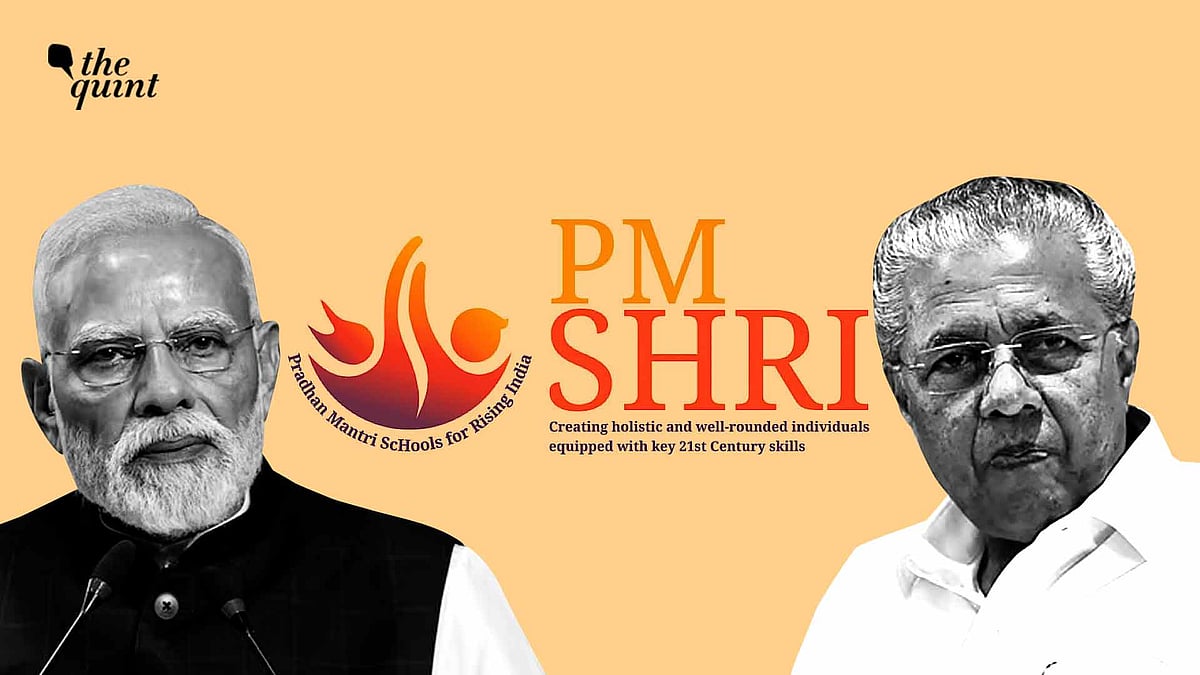
Why Kerala’s Decision to Join PM-SHRI Is Pragmatic, Not Political
Kerala’s decision shows how a state can navigate India’s tight federal corners and still defend its values.

advertisement
Kerala’s decision to sign the PM-SHRI (Pradhan Mantri Schools for Rising India) Memorandum of Understanding has set off a predictable storm. Critics claim the Kerala government has bent to Centre’s pressure, while others call it a departure from Kerala’s tradition of educational autonomy.
But this decision isn’t about surrender or submission. It is about how a state can navigate the tight corners of India’s federal structure and still defend its values.
Kerala’s politics often swings between two extremes: total resistance or total acceptance. Either reject a central scheme to defend autonomy or accept it completely to access funds. But real governance lies in between.
Refusing PM-SHRI would have meant saying no to much-needed resources for government schools. Blindly accepting it would have risked diluting Kerala’s secular and inclusive education model. By signing the MoU, the state opted to secure access to central funds while retaining the ability to guide how the scheme is implemented within its schools.
Learning From Ayushman Bharat
Kerala has faced this dilemma before. When the Centre launched the Ayushman Bharat health insurance scheme, Kerala opposed the idea of insurance-led healthcare. The state argued that health protection should be publicly funded, not privatised. But rejecting the scheme would have meant losing National Health Mission support.
The result proved that engagement could protect autonomy. Kerala’s health sector did not weaken, but it improved. The same approach underlies its decision on PM-SHRI.
A Financially Sensible Move
The PM-SHRI scheme aims to upgrade over 14,000 schools across India with labs, smart classrooms and green buildings, with an outlay exceeding Rs 27,000 crore. For a state running around 13,000 public and aided schools, this is an opportunity that cannot be ignored.
Kerala’s finances are under stress, with reports of over Rs 1,000 crore in central dues pending. Rejecting PM-SHRI would not have hurt the Centre but would have deprived Kerala’s students and teachers of valuable support. Signing the MoU was a practical decision, not an ideological one. The real question is how to implement it while preserving the essence of Kerala’s education system.
What Kerala Can Still Do
Even with the MoU signed, Kerala retains significant control. The agreement allows the state to issue its own operational guidelines. Curriculum, textbooks, and teacher appointments can continue under state authority.
Funds can be channelled mainly into government and aided schools, ensuring that public education remains the priority. Transparency will be crucial. Publishing annual data on infrastructure, learning outcomes and attendance can build trust and provide evidence for policy adjustments if conflicts arise.
At the inter-governmental level, Kerala can push for greater flexibility through the Council of Education Ministers or the Inter-State Council. By formally recording its concerns, it can set a useful precedent for other states that value both cooperation and autonomy.
Pragmatism Is Not Capitulation
Kerala’s history is full of examples where pragmatism led to structural reform. During land reforms in 1957, the Centre objected to including plantations. The state went ahead anyway, enacting one of India’s most successful redistributive policies. The lesson then and now is the same: progress comes through negotiation, not isolation.
Signing the PM-SHRI MoU does not mean Kerala has compromised its principles. It reflects an understanding that governance in a federal democracy demands both conviction and adaptability. If implemented wisely, the scheme can modernise school infrastructure while reinforcing Kerala’s secular and equitable education model.
As Kerala prepares to declare itself India’s first extreme poverty-free state by 1 November, 2025, this step fits a larger story. The state’s achievements have always come from balancing ideals with practicality. Its progress in health, education and social welfare has been built not on confrontation but on intelligent negotiation.
Kerala’s approach to PM-SHRI is part of that tradition. It shows that resilience in governance is not about rejecting every central initiative but about adapting them to reflect local priorities. In a system where power and resources are unevenly distributed, that balance between principle and pragmatism is what keeps Kerala moving forward.
(The author is a policy economist and a fellow at Governance Innovation Labs. This is an opinion piece and the views expressed above are the author’s own. The Quint neither endorses nor is responsible for the same.)
- Access to all paywalled content on site
- Ad-free experience across The Quint
- Early previews of our Special Projects
Published: undefined